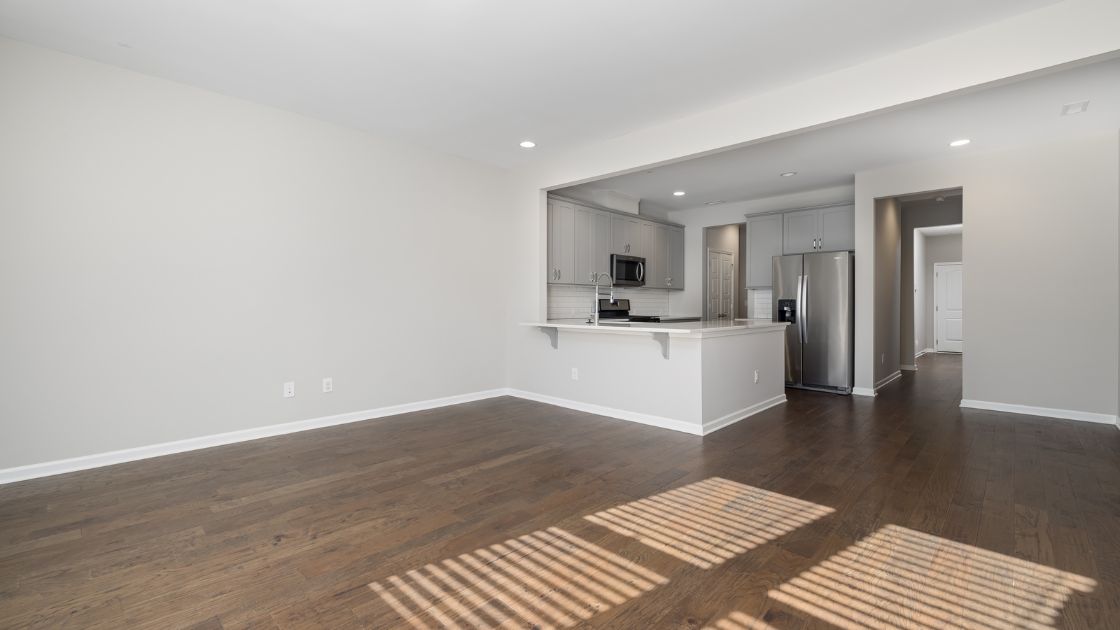If you’re a real estate investor looking to purchase or refinance rental property without showing personal income, tax returns, or pay stubs, a DSCR loan could be the solution.
A DSCR loan (Debt Service Coverage Ratio loan) is designed specifically for rental properties. It allows investors to qualify based on a property’s cash flow, not their personal income. In this guide, we’ll explain how you can qualify for a DSCR loan, the key benefits, and what lenders are looking for.
What Is a DSCR Loan?
DSCR stands for Debt Service Coverage Ratio. This ratio measures how much income a property generates compared to its debt obligations.
DSCR = Monthly Rent / Monthly Loan Payment
A DSCR of 1.0 means the property generates just enough income to cover the loan payments. Most lenders want to see a DSCR of at least 1.0 to 1.25, depending on the loan program.
These loans are popular because they don’t require traditional income documentation. Instead, lenders evaluate whether the rental income from the property can cover the mortgage.
Key Benefits of DSCR Loans
- No Tax Returns or Paystubs Required
- No Employment or Income Verification
- Fast Closings with Shorter Timelines
- Options to Avoid Prepayment Penalties
- Available for Purchase, Refinance, or Cash-Out
- Available for Properties with 1-10 Units
- Semi-Rural, Vacant, and Portfolio Properties Welcome
How to Qualify for a DSCR Loan
Unlike traditional loans, qualifying for a DSCR loan is straightforward if the property cash flows well. Here are the core requirements:
1. Sufficient Rental Income
The property must generate enough rental income to meet or exceed the monthly loan payment. A DSCR of 1.0 or higher is typically required.
Example: If your mortgage payment is $2,000/month, your rental income should be at least $2,000/month for a 1.0 DSCR. However, a DSCR of 1.25 or higher improves your chances of approval and may qualify you for better loan terms.
Tip: Use current lease agreements or a short-term rental history report to support your income numbers. Ensure the rent aligns with the market value as confirmed by appraisal.
2. Minimum FICO Score of 680
Most DSCR lenders require a credit score of at least 680. A score above 700 is considered strong and may help you access lower interest rates and better terms.
Tip: Review your credit report for errors, pay down revolving debt, and avoid opening new credit accounts before applying.
3. Property Value
The property must typically appraise at $100,000 or higher. Some lenders may offer limited flexibility, but properties below this threshold may be considered higher risk and may not qualify.
Tip: Focus on properties in stable or appreciating markets to meet this minimum value and support future equity growth.
4. Down Payment
DSCR loans usually require a 20% to 25% down payment. In some cases, lenders may allow 15% down if you have strong credit, a high DSCR, or additional reserves.
Tip: Be prepared to show proof of funds and consider setting aside reserves to cover several months of mortgage payments, which some lenders require.
5. Appraisal and Market Rent Analysis
The lender will order an appraisal with a rent schedule (Form 1007) to determine the market rent and confirm the DSCR.
Tip: Make sure the property is in good condition and rent-ready before the appraisal. Clean, maintained properties tend to appraise higher. Provide recent rental comps to the appraiser when possible to support the rent estimate. The lender will order an appraisal with a rent schedule (Form 1007) to determine the market rent and confirm the DSCR.
6. Property Types Allowed
Eligible properties include:
- Single-family homes
- Duplex to 10-unit residential properties
- Short-term and long-term rentals
- Portfolio loans (multiple properties)
- Semi-rural or vacant properties (with plan to lease)
Tip: Ensure each property has a clear path to producing income, especially for vacant or newly purchased properties. Have a lease-up strategy in place if the unit isn’t currently rented. Eligible properties include:
7. Loan Program Fit
DSCR loans are not one-size-fits-all. Look for lenders with multiple DSCR loan options to match your investment strategy.
Tip: If your strategy includes cash-out, short-term rentals, or long-term holding, communicate that to your lender. A specialized loan officer can help you choose the program that best supports your investment goals. DSCR loans are not one-size-fits-all. Look for lenders with multiple DSCR loan options to match your investment strategy.

Tips to Maximize Your Approval Odds
- Document Lease Agreements or Short-Term Rental History
Provide signed lease agreements for long-term rentals or detailed booking history for short-term rentals. This gives the lender confidence that the property produces consistent income. - Improve Credit Score Above 700 for Better Terms
A higher credit score opens up better interest rates and loan terms. Pay down credit cards, avoid new debt, and check your credit report for errors to boost your score before applying. - Consider Properties with Strong Rental Demand
Look for areas with low vacancy rates, job growth, and amenities that attract renters. Lenders see properties in high-demand markets as lower risk. - Work with a Lender Who Specializes in DSCR Loans
Not all lenders understand DSCR financing. A specialized lender can guide you through the process, offer flexible programs, and help you structure the deal to meet qualification standards.
Final Thoughts
DSCR loans give rental property investors a powerful financing tool that bypasses traditional income documentation. By focusing on the cash flow of the property, you can grow your rental portfolio—even if you’re self-employed, retired, or building your credit.
If you’re ready to explore DSCR loan options or need guidance on your next rental purchase or refinance, our team at GL&L Holdings can help. We offer 8 unique DSCR loan programs tailored for real estate investors across various property types. With competitive rates, flexible terms, and no income requirements, we’re here to help you move forward.
Start your application today at www.gllholdings.com or contact us to learn more.


